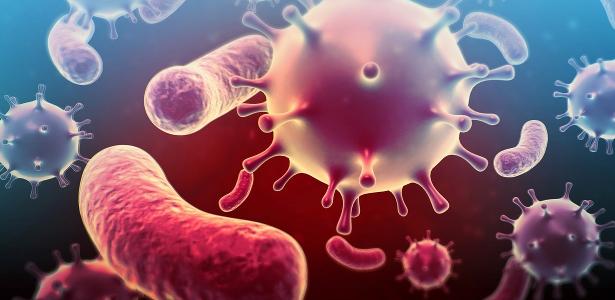
A group of Chilean scientists discovered about 20 unknown species of bacteria in Antarctica that are highly-resistant to antibiotics, which can transfer their resistance to other microorganisms and thus threaten global health. can generate.
Andres Marcoleta, assistant professor in the Department of Biology at the University of Chile, together with researcher Macarena Varas and his assistant Alexis Goethe, conducted two expeditions to the Antarctic Peninsula and the South Shetland Islands between 2017 and 2019.
With shovels, sterile containers, and modern equipment for measuring environmental parameters, they sought to determine how resistant the microorganisms living there were in relation to bacteria from other environments.
After collecting hundreds of endemic bacteria, they found that about 20 were completely unknown and had characteristics of “hyper resistance”, Marcolette explained to AFP.
To determine their incredible power of resistance, scientists developed 12 samples and exposed them to a variety of antibiotics used to treat infectious diseases and metals that have bactericidal properties, such as copper, arsenic. or cadmium.
“Practically none of the antibiotics had an effect on these bacteria. They have many resistance properties. Perhaps this resistance acts in their natural environment to counteract other toxic compounds,” Marcolette said.
“Many of them (bacteria) are multiresistant to classic antibiotics or produce a metabolite that we are in the process of characterizing, which has antibiotic activity against some bacteria that are of clinical interest,” Dr. . Waras said.
Scientists were concerned about this new discovery, because “we are increasingly detecting infections by bacteria that are very resistant to the substances available today to treat these infections,” Marcolette said.
According to a study published in January in the prestigious British Medical Journal, ‘superbug’ infections killed 1.2 million people in 2019. the Lancet,
Meanwhile, WHO (World Health Organisation) declared a global health crisis in the face of antimicrobial resistance and created a working group to study alternative treatments.
“These resistance abilities of Antarctic bacteria may be acquired by pathogenic bacteria (which cause diseases), a condition that would cause serious health problems on a global scale”, hints at the study published in the journal Get Science of the Total Environment,
pseudomonas
marcoleta details that the bacteria of particular interest are Pseudomonas, which are dominant in the soils of the Antarctic Peninsula and are relatives of others living in urban areas, responsible for serious diseases such as cystic fibrosis.
But how can these bacteria harm humans?
“Fortunately, everything indicates that the so-called Pseudomonas antarctica is not pathogenic, but can act as a source of resistance genes and the pathogens can be transferred with relative ease to Pseudomonas”, the study said.
In this case, he warned, “we will have a health problem because there will be new resistance genes that will contribute to this crisis of antimicrobial resistance.”
Experts say that knowing the genes of these bacteria present in Antarctica will also help in the design of potential new antibiotics.
bacteria and climate change
Scientists have launched a new study in which they want to determine how these bacteria may have been transmitted from Antarctica to the rest of the world.
“The Antarctic Peninsula, where we will continue to do research, is one of the most affected by the melting ice due to climate change”, says Marcolette.
Year after year and at a faster rate, soils are melting and exposing reservoirs of resistance genes.
The researchers intend to determine how this condition affects the bacteria and whether their genetic information can be spread by plants or animals.



